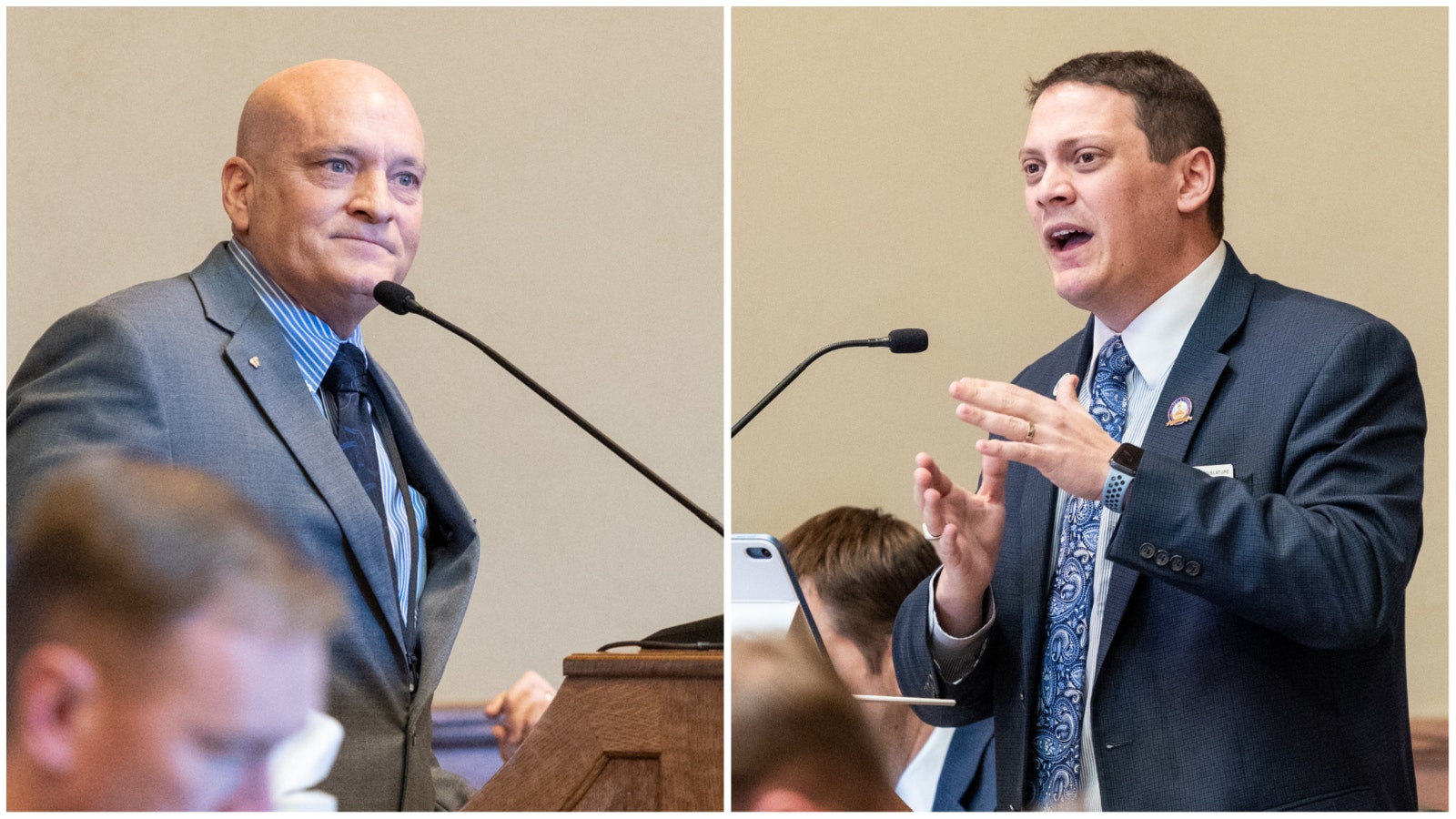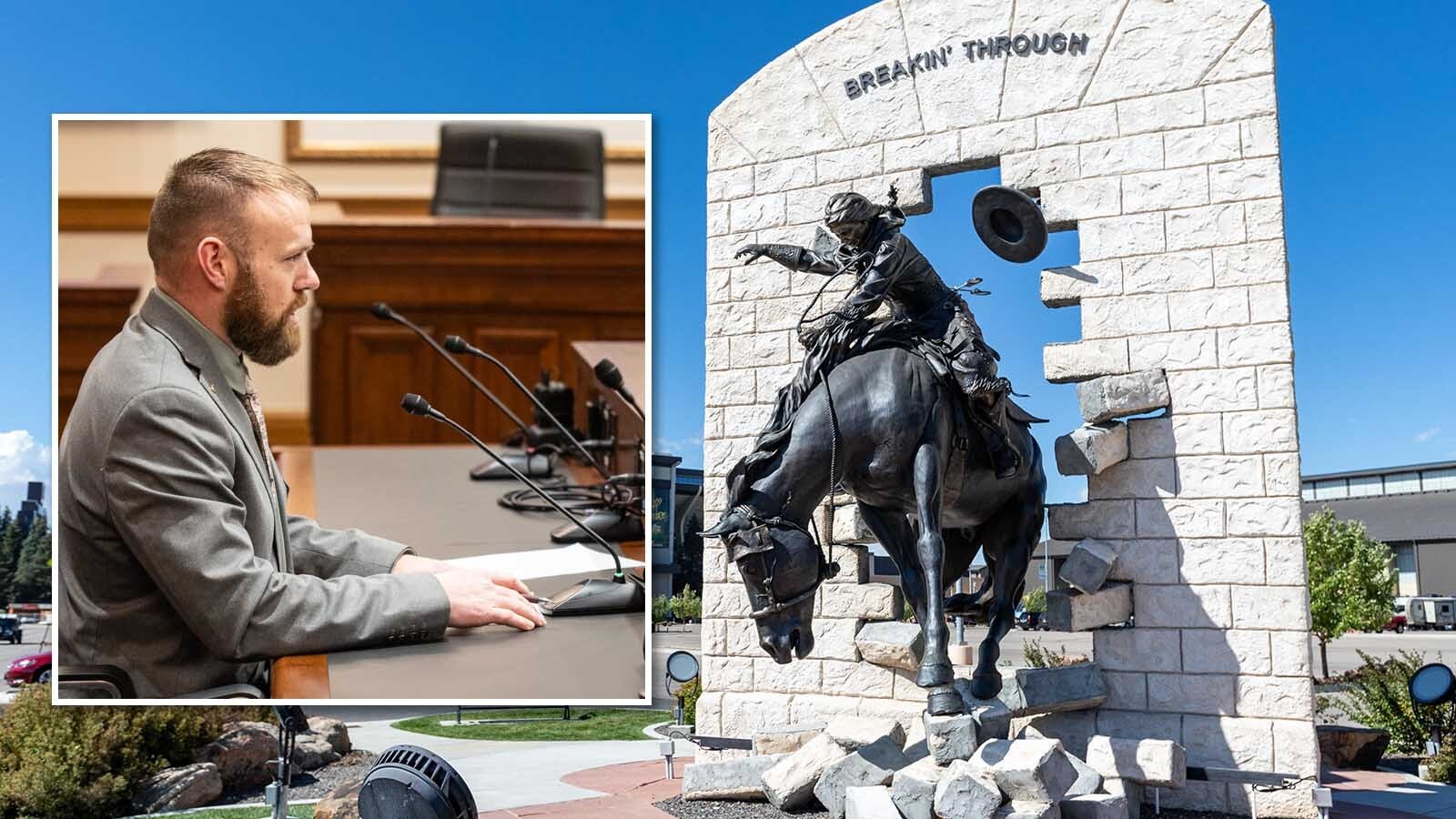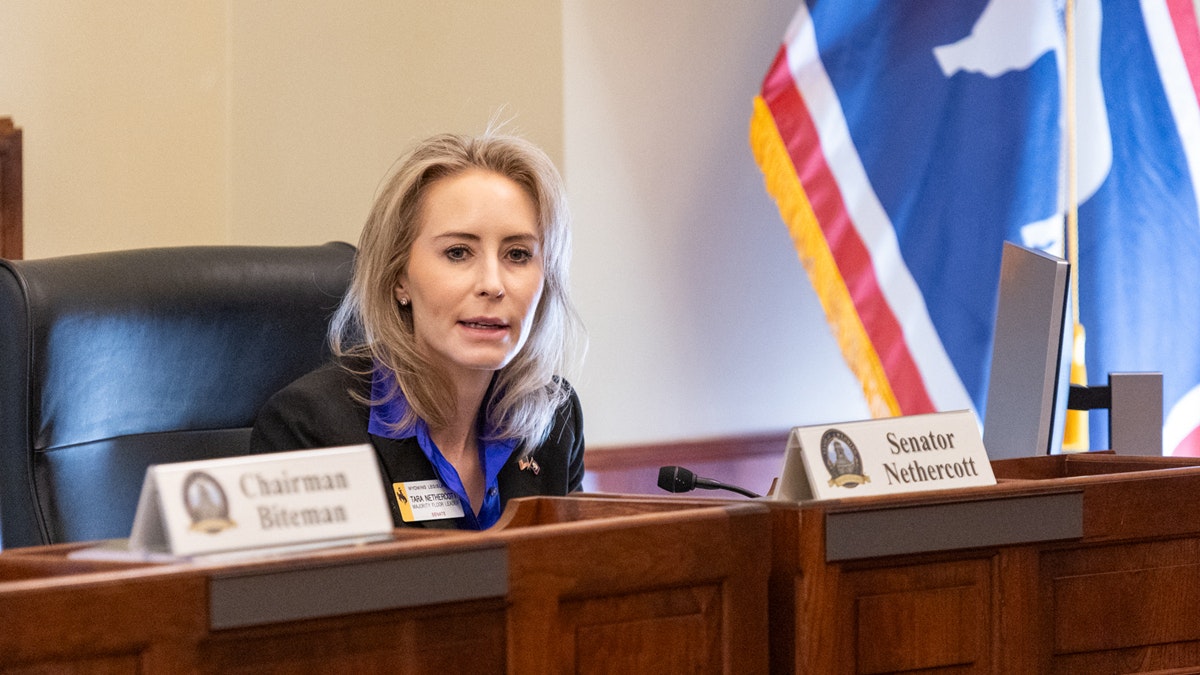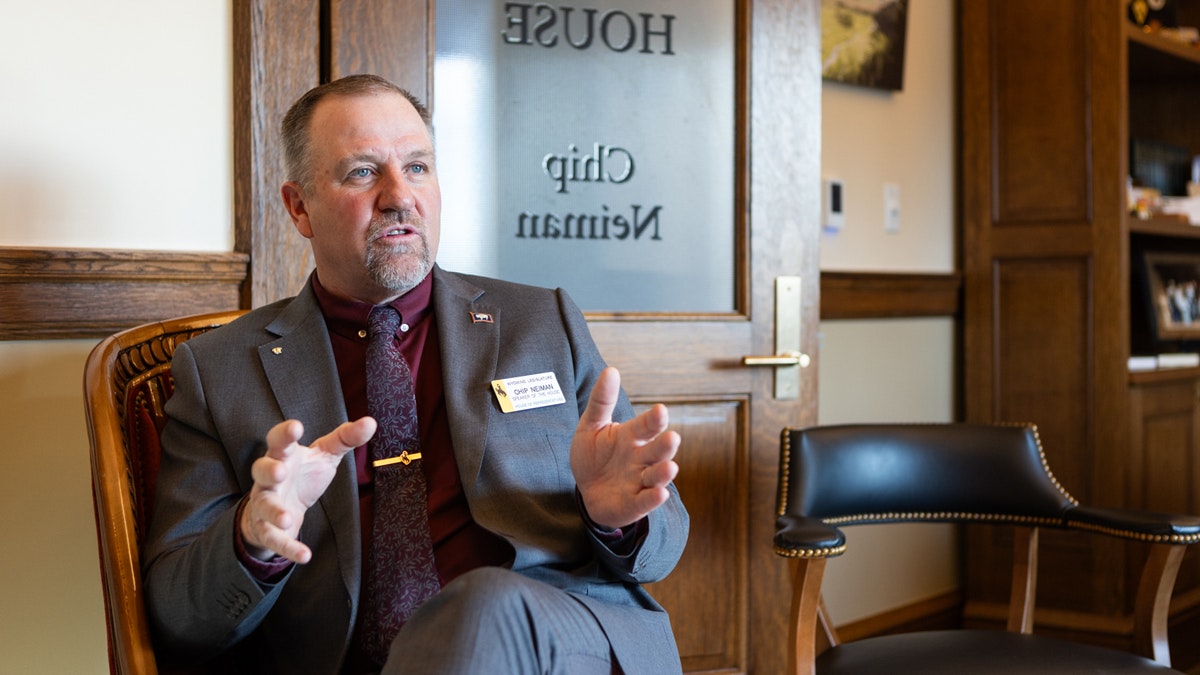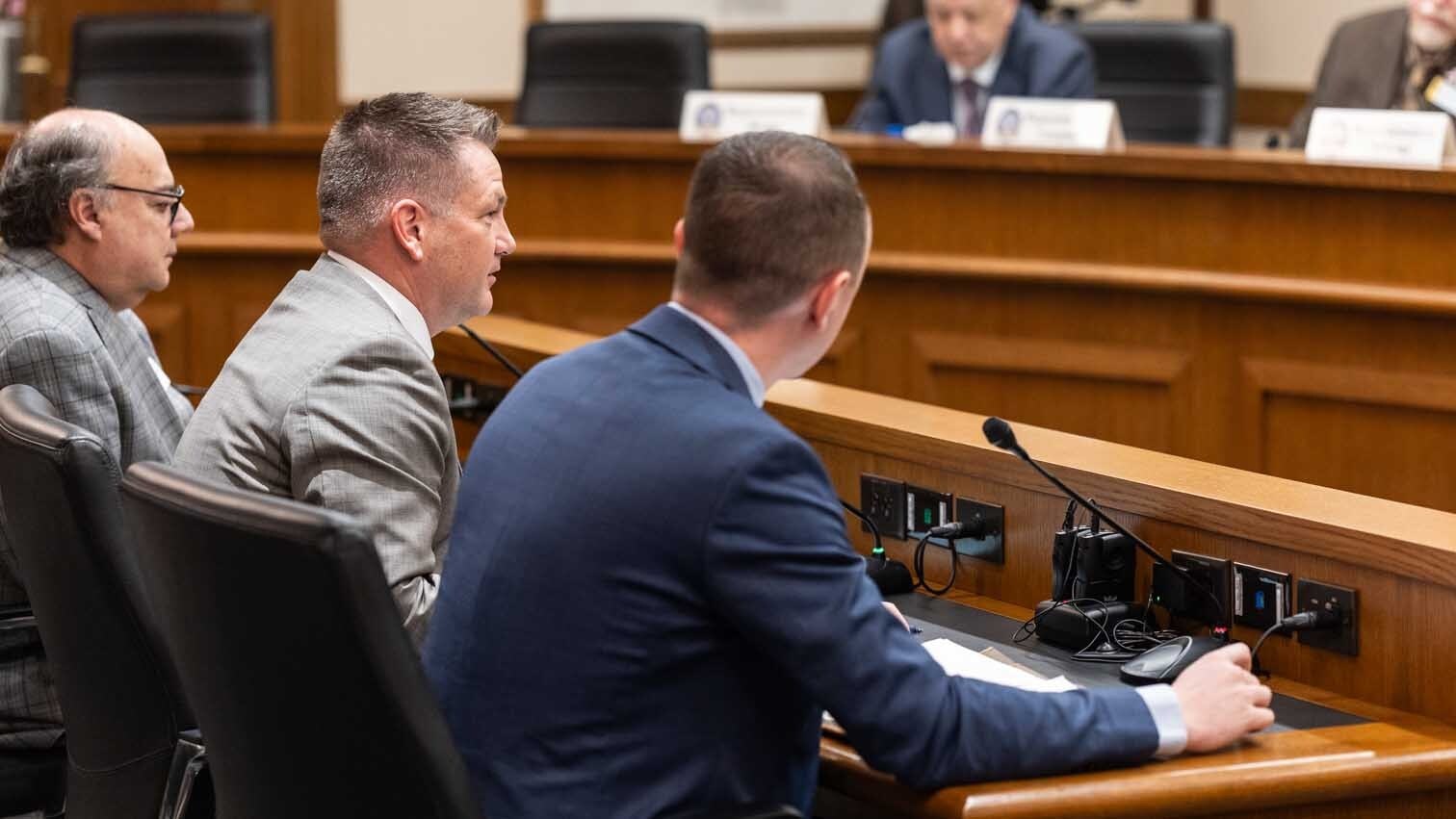The Wyoming Legislature killed nearly a dozen bills on Monday, signaling legislators are narrowing their focus as they wrap up the 2023 session.
Monday was the deadline for bills to receive their first reading in the second house of origin. The State House let nine bills expire without receiving a first reading, while in the Senate two met their demise.
Those who voted against ending discussion in the House are already throwing mud, making for a classic “whodunit” as to who should be blamed.
Speaker of the House Rep. Albert Sommers, R-Pinedale, said he voted against the decision that was supported by most members of the staunchly conservative Wyoming Freedom Caucus.
“It’s very clear that the Freedom Caucus voted with the Democrats to end debate and thus killed nine bills that were on the bottom of general file, including Chloe’s Law, two ESG bills and the last remaining bill that would have provided property tax relief,” Sommers told Cowboy State Daily. “That’s on their shoulders, not ours.”
“Chloe’s Law” would have allowed the state to revoke doctors’ licenses for performing transgender treatments on children.
“After repeatedly revealing substitute bills with no notice to the sponsor or the public, slipping gun control provisions into seemingly innocuous civil rights legislation, and blocking attempts to bring widely supported legislation to the floor, the uniparty machine cannot honestly claim that the Wyoming Freedom Caucus stood in the way of banning the butchery of children,” said Rep. John Bear, R-Gillette, chairman of the Freedom Caucus, in a Tuesday op-ed.
Most of the bills that died didn’t receive any discussion and therefore likely didn’t have a great chance of passing into law anyway. Another bill that the Freedom Caucus and Democrats were allied on was in opposing Senate Joint Resolution 11, which would have requested Congress to call a Convention of States.
The Timing Of The Call
It was the decision of Majority Floor Leader Rep. Chip Neiman, R-Hulett, to end discussion on Monday night.
Neiman told Cowboy State Daily on Monday night he thought the time was right to pull the cord on debate.
“I believe it was the right thing to do,” said Neiman in a text to Cowboy State Daily. “We made a full effort to get Chloe’s Law to the right committee and it was rejected by the body.”
The Freedom Caucus drove a national campaign against Sommers that included social media messaging, Fox News and national-level newspaper coverage, and pressure from U.S. Rep. Harriet Hageman. The Caucus and its supporters criticized Sommers for sending SF 144 to a committee it did not prefer, but in the end, it was a member of the Freedom Caucus, Neiman, who ended up killing the bill entirely.
“I made it clear to House members that we would stay in session until midnight to hear all of the Senate Bills on General File,” Sommers said in a Tuesday press release.
The committee that did hear SF 144 ended up amending it to the point where its sponsor Sen. Anthony Bouchard, R-Cheyenne, said it had been gutted.
“The members of the Wyoming Freedom Caucus do not seek to pat themselves on the back for voting AYE on do-nothing bills with great titles,” Bear said. “The Wyoming House was provided an opportunity to support SF0144, and it chose not to do so. Now, many members seek an “attaboy” for supporting a bill that does nothing to protect our children.”
Speaker Pro Tempore Rep. Clark Stith, R-Rock Springs, disagreed.
“As it stood, SF0144 had a lot of support,” Stith said in a Tuesday morning press release. “We were ready to burn the midnight oil to hear SF 144 and the list of bills awaiting critical debate before Monday’s deadline. Unfortunately, the Freedom Caucus joined the Democrats to ensure those bills will not see the light of day.”
A similar fate also came to the two environmental, social, and corporate governance bills that would have diverted state funds away from companies that use social credit scores. These bills had been amended to the point where its sponsor disavowed the bills. Those bills officially died when Neiman drew the curtains on discussion.
Neiman said another bill that died alongside Chloe’s Law, Senate File 35, had a $10 million price tag, which was a main reason he called for the end. This bill would have provided funding for school crosswalks and pedestrian bridges.
Rep. Landon Brown, R-Cheyenne, called the sacking of that bill a “travesty.”
“We had committee bills that died last night that protected children from unsafe car seats and provided $10 million for safe crosswalks after losing a child here in our community,” Brown said. “The Freedom Caucus and the Majority Floor Leader decided they had enough of debating and shut us down. It’s a travesty honestly.”
A property tax bill that died, Senate File 136, would have decreased the property tax assessment rate by 1% for the next three years. This bill would have cost Wyoming an estimated $159.8 million in lost revenue from 2025-2026.
Late Night Fright
Rep. Barry Crago, R-Buffalo, said he opposed ending discussion.
“I would have liked for those bills to be heard,” he said.
Floor debate ended around 8 p.m., but many had anticipated Monday’s debate to go well into the wee hours of the night. There hasn’t been a single day of the 2023 session where that has happened. Although not rampant, long nights are a common feature of past legislative sessions.
Crago said although this shouldn’t happen every night of the session, he does believe there are times when it’s necessary.
“I was prepared for it,” he said. “I think last night it was deserved.”
Rep. Mike Yin, D-Jackson, voted for ending the discussion.
“I believe that working till midnight doesn’t make for good laws or good debate and that the body debated the issues that are most important to the state,” he said.

